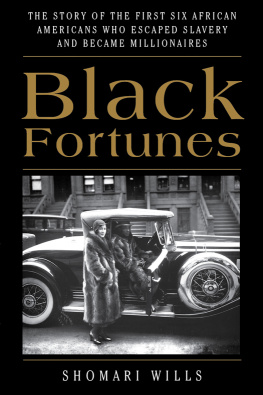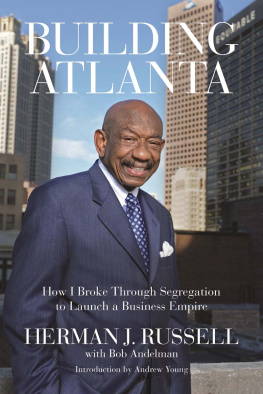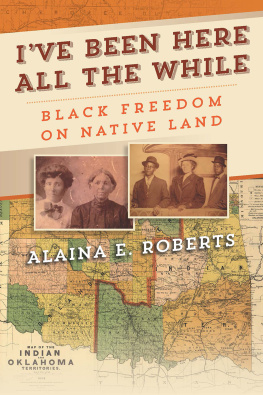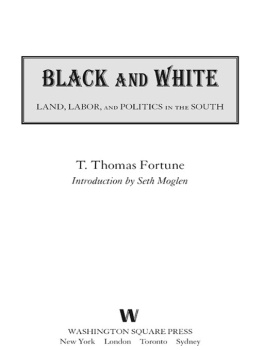I grew up hearing stories from my mother about Uncle Johnnie the millionaire. My great-great-uncle John Mott Drew, born in 1883, was a boisterous man with a hearty laugh who dressed in all-black three-piece suits and wore a white Panama hat on top of a head of wavy white hair. He was known for being frugal despite his wealth and gave the children in the family two-dollar bills and silver dollars for Christmas.
Before he rose to millionaire status, John Drew was the son of a slave. His father, Napoleon Bonaparte Drew, was enslaved on a large plantation called Belmead in Powhatan, Virginia. Napoleon had a zealous work ethic and an innate sense of self-confidence, which he passed down to his children. After Emancipation, he bought a farm in 1897 near the plantation where he had been enslaved and became the first black person in Powhatan County to own property. In 1875, he rented out his farmland and Napoleon moved north to Darby, Pennsylvania, a suburb of Philadelphia, with his wife, three sons, and a daughter. When his children reached adulthood, Napoleon sold most of the land in Powhatan. Take the money from my land and make something of yourselves, he told his children. In 1901, Simon Drew, his eldest son, opened an ice-house in Darby where he sold oysters, beer, and ice cream. Simon was known for the parties he threw at his restaurant as well as for being a look-alike for Frederick Douglass, with long white hair smoothed back tightly and a distinguished beard. After opening a restaurant, he bought four apartment buildings in the black suburbs of Philadelphia and became a landlord.
His brother John Mott Drew was an even shrewder investor. John started his career in real estate like Simon, but he eventually branched out to other, more lucrative businesses. In 1919, he noticed that the people in the majority-black towns of Yeadon and Darby, where he also lived, had no way to get to work in Philadelphia and nearby Lansdowne, Pennsylvania. He took matters into his own hands, bought a bus, and began driving a jitney route from the suburbs to the cities. When he founded the John Drew Bus Line, he became the first African American to own a bus line. The enterprise grew over time, adding six buses to its fleet and several dozen employees. In 1930, he sold his business to a larger conglomerate under the condition that it would retain his black employees and never allow segregation on his bus route.
John Drew was also a stock trader. He knew that directly trading stocks himself would prove extremely difficult, and hired a white broker to trade secretly on his behalf. During the Roaring Twenties, John invested the profits from his bus company sale into the stock market and benefited from the historically profitable bull market. In the late 1920s, sensing that the roaring stock market had entered a bubble, he told his broker to pull his money out. He walked away with over $250,000 ($3.5 million) just months before many other investors were wiped out by the Great Crash of 1929.
John purchased a local Negro League baseball team, the Darby Daisies. He operated the team for two years, until it folded in 1932 due to low attendance, as during the Great Depression fans had less money for recreational activities. John turned the ballpark into a gentlemans farm, furnishing it with livestock that grazed on the infield. John died without a will. His story made me realize that the economic achievement of African Americans dates further back than todays black elite.
The creation of black wealth is an important but overlooked subject in the economic and social history of the United States. African Americans were treated as property during slavery and were stripped of their economic and social personhoodreduced to commodities to be controlled, managed, bought, sold, underwritten, and leveraged. Attaining economic independence and power was a revolutionary act.
Black millionaires disrupt stereotypes of black economic impotence. They remind us that African Americans do not lack the desire or ability to work or build businesses and wealth, but that instead they have often had to overcome great struggles to achieve economic stability, let alone independence and power.
Early in our countys history, African Americans who achieved wealth were often attacked, demonized, or swindled out of their money by those who knew the Jim Crow court system would offer no redress to a black person. The black elite in their first decades of existence survived assassination attempts, lynchings, frivolous lawsuits, and criminal cases all meant to destroy or delegitimize their wealth. Madam C. J. Walker was memorialized as the first black millionaire not because she was the first to achieve wealthshe was far from the firstbut because she was one of the first African Americans to flaunt and claim her wealth openly and fearlessly. The earliest black millionaires were conditioned not to be so brazen.
Black Fortunes tells the story of Mary Ellen Pleasant, Robert Reed Church, O. W. Gurley, Hannah Elias, Annie Turnbo Malone, and Madam C. J. Walker, Americas first cohort of black millionaires, and their journey to liberty and wealth.
Mary Ellen Pleasants story begins in the 1820s and spans nearly a century. She was a free black woman who was raised in New England during the whaling boom of the 1830s and 1840s that inspired Herman Melvilles most famous work, Moby-Dick. She left New England for California during the gold rush of 1849 and became wealthy as a commodity trader, a moneylender, and the proprietress of high-end boardinghouses. She used her wealth to fund John Browns raid on Harpers Ferry and supported suffrage and civil rights activists and causes.
Robert Reed Church was born a plantation slave during the peak of the cotton trade, the product of a liaison between a wealthy white steamboat captain and his black concubine. He escaped slavery during the Civil War and became one of the largest landowners in Memphis.
Annie Malone was the daughter of slaves. She was abandoned at an early age and raised by her sister in Illinois. As a young woman, she invented a number of black hair products, which she later built into Americas largest hair brand.
At the turn of the century, O. W. Gurley, a schoolteacher from Pine Bluff, Arkansas, built an all-black neighborhood in Tulsa, Oklahoma, called Greenwood, which became known as Black Wall Street. The enclave served as a refuge for African Americans seeking a middle-class life and a safe haven from the lynchings and racial violence of the South, until it was destroyed by a white mob in 1921 during the Tulsa race riots.
Hannah Elias was the black mistress of a white New York millionaire who heaped money on her. She used his gifts to decorate her mansion to look like Cleopatras palace. When her wealth and affair with a white man were revealed, angry mobs set upon her house, and she was arrested. Elias eventually beat the charges and moved to Harlem, where she helped John Nail, a black real estate developer, turn the neighborhood into an enclave for New Yorks black residents.
Researching the stories of these titans of industry was challenging, because they died more than one hundred years ago (with the exception of Annie Malone, who passed away in 1956). Few records exist concerning African Americans before 1865. At the time, they were often viewed as noncitizens and seldom cataloged by census takers or vital-records keepers. Further, in many cases, these men and women were self-educated and could read but not write effectively, and as a result they did not keep diaries or engage in letter writing. They had small families and only a few of their children lived to adulthood, leaving virtually no surviving relatives to tell their stories directly. Therefore, I relied on extensive archival research. I painted the stories of these accomplished people by surveying their own writings and letters, newspaper clippings, and oral accounts by their contemporaries that were documented. I labored over any available vital records. In hundreds of hours of research, I have given an earnest effort to deliver an accurate and fair portrayal of these individuals lives and their work.











